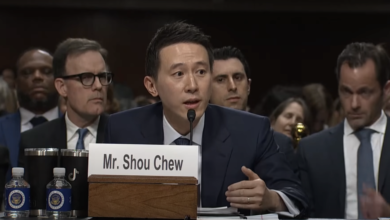In its short nine months in office, the Obama White House has ordered 60,000 more soldiers and marines to Afghanistan. That is more than double the number sent to occupy the country by Bush.
 A U.S. soldier scans the retina of an Afghan man. |
But President Obama, in a nationally televised address from West Point, reassured all that the so-called surge of troops was actually the way to end—rather than expand—the war in Afghanistan. He indicated that the troops would start leaving Afghanistan in July 2011, 18 months from now.
So what gives? Is it the beginning of the end of the war or a new beginning of an even wider war? Afghanistan is now the longest war in U.S. history.
The Obama administration is not beginning to end the war. The promise to “start a withdrawal” in July 2011 was an oratorical device, a sleight of hand designed to appease public opinion, which largely opposes the war or is at least increasingly skeptical about the prognoses mouthed by political and military leaders.
The only reason that tens of thousands more troops are being sent to fight is that the 100,000-strong U.S./NATO occupation force is losing the war. Under those circumstances, there are two choices: Accept a military setback and withdraw, or escalate and deepen a counter-offensive with additional reinforcements.
There is also a third option that is applicable to a long-standing military stalemate where both sides become exhausted from the conflict and unable to win. That includes a negotiated armistice or ceasefire agreement where both sides achieve more limited objectives. In Afghanistan, that would likely mean a coalition government including both the Taliban and President Hamid Karzai or another U.S.-picked Afghan puppet partner.
War is a means to an end—but that end has been concealed
President Obama and even the Pentagon brass would prefer to end the war. They would prefer to draw down the size of the U.S. force to much lower levels. The goal is never to fight endlessly but rather to win the war and secure the political and economic advantages that come with victory.
U.S. officials expected a relatively easy victory in Afghanistan in 2001. The Taliban-led government was weak and had never controlled the entire country. Afghanistan had just emerged from an intense and debilitating seven-year-long civil war.
Bush, Cheney and the Pentagon high command thought that Afghanistan would fall quickly and subsequently serve as a permanent U.S. military and political base. From there, Washington could exercise dominance over Central Asia and especially the natural gas-rich former Soviet republics of Kazakhstan, Kyrgyzstan, Tajikistan, Turkmenistan and Uzbekistan.
The significance of that region cannot be overstated. Kazakhstan is the ninth largest country in the world, having vast oil and natural gas reserves. Its western border is the Caspian Sea coast directly across from Azerbaijan, which constituted the center of the Soviet Union’s vast oil production industry. This is a big prize.
The U.S. military and political establishment all agreed that the dissolution of the USSR provided a rare opportunity to create a new U.S. sphere of influence in these former Soviet Republics just as they were incorporating the formerly socialist governments of Eastern Europe into the U.S.-led NATO military alliance.
The Marxist perspective on war
The military effort in Afghanistan is in pursuit of economic and political interests. Pacifism teaches that all war is bad because it is the absence of peace. Marxism, on the other hand, seeks to understand the class interests that are served by any particular war and by the different actors in any conflict.
Rarely revealed are the actual class interests and real objectives of the protagonists. It is particularly difficult or impossible for the political and military leaders of an imperialist empire to openly proclaim their actual motives.
It is hard to convince a skeptical public that they should spend precious tax dollars on war during a depression and send their children to kill and be killed in foreign lands so that the biggest U.S. banks and corporations can achieve or maintain a dominant position in a resource-rich region of the world.
Nor could they popularize the war by announcing the Pentagon wants to establish more bases to protect these far-flung corporate interests. The United States has 750 permanent military bases in 130 countries, even though the last large-scale foreign attack on the U.S. mainland before Sept. 11, 2001, was the British assault on Washington in the war of 1812.
If the working people of the United States believed that the Afghanistan war was simply an exercise on behalf of imperialist interests, the resistance at home would skyrocket.
So the war is presented differently. It is portrayed as a grim but necessary effort to keep the American people safe from “Islamic terrorists.” Obama, like Bush before him, used this as his core argument in his West Point speech. Bush used a variant of this argument in trying to explain the invasion of Iraq: Terrorists, this time armed possibly with nuclear weapons, had to be preemptively destroyed.
Iraq posed no threat, and was indeed on its knees after 13 years of economic blockade and daily bombings by U.S. fighter planes.
If the Afghanistan war was actually necessary to defend the U.S. population from a devastating military attack, then a pacifist argument against the war, or the so-called troop surge, could only fall flat.
If, however, the people understand that they are being asked now to send tens of thousands more young people only because an imperialist war has floundered in the face of an unanticipated nationalist armed resistance movement, then the people will, as they did during the Vietnam War, become forceful and militant opponents of the war.
The war in Vietnam, too, was based on an official lie. U.S. officials asserted that North Vietnam unilaterally attacked a U.S. ship in the Gulf of Tonkin. Congress gave the president a blank check and he rushed a half million troops into Vietnam, where they met an unexpected, enduring armed resistance.
‘National defense’ argument holds no water
Of the 19 airplane passengers who were determined to have carried out the September 11 attacks in 2001, 15 were from Saudi Arabia. None were from Afghanistan. Saudi Arabia, the religious center of Islam’s holiest shrines in Mecca and Medina, had been occupied by U.S. troops since August 1990. This was the first time that a non-Muslim army had stationed its troops in Saudi Arabia.
George W. Bush asserted that Osama Bin Laden and al-Qaeda were behind the attack. Bin Laden, who comes from a super-rich Saudi family, was indeed living in Afghanistan as a “guest” of the Taliban-led government since Sudan insisted that he leave that country in 1996.
The Taliban government denounced the Sept. 11 attacks on the very night they occurred. Later, the official Sept. 11 Report issued by the U.S. government stated, “we have seen no evidence that any foreign government—or foreign government official—supplied any funding.”
The Taliban government stated that they would extradite Bin Laden to a Muslim country to stand trial if the U.S. government provided evidence that he was responsible for the attacks. Bush responded by declaring “no negotiations with terrorists” and ordering the invasion of Afghanistan.
That was eight years ago. Although no Afghan participated in the attack, more than 10,000 have been killed and their villages are now occupied. Today, there are more than 140 armed insurgent groups fighting against the foreign occupiers. This shows the breadth and depth of the nationalist revulsion to the occupation.
The Taliban is a reactionary political force. Its top leaders fought in the U.S.-sponsored covert war to destroy the socialist government that came to power in Afghanistan in 1978. So, too, did Osama Bin Laden, who was funded by the CIA.
The Taliban refused to hand over Bin Laden to Bush without some proof first. This does not mean that the Taliban has an interest in promoting international attacks against the United States. In fact, before Sept. 11, the U.S. government provided aid funds to the Taliban-led government.
The rationale for the U.S. war effort is still to prevent another attack. Obama surrounded himself with military brass to give credibility to the argument. This is allegedly a war for defense “against terrorists,” not a last ditch effort to save a doomed imperialist adventure.
The domestic opposition to the government’s Afghanistan policy will turn into the most intense anger and mass action if the people conclude that the leaders know this is an imperialist war and is unwinnable, and yet they have decided to send more and more young people into battle simply to avoid the perception of defeat.
Throughout history, the so-called great empires feared defeat not because any single setback was catastrophic in and of itself. At stake was the reputation of the empire, its apparent omnipotence and its capacity to employ limitless violence against its foes. That reputation inspired fear and allowed the empire to thrive.
U.S. capitalism is today’s modern empire. Its war policies do not derive from the personality of its presidents. The logic of empire and the profit drive of big capital dictate the expansion of a war that cannot be won.






